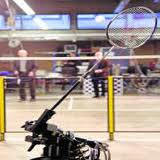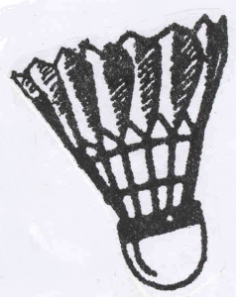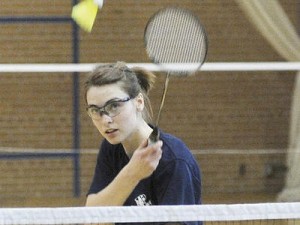By Lowell N. Douglas, Ph.D
In a series of studies conducted by the Department of Physical Education at Baylor University, information has been obtained which suggests that Badminton is one of the finest conditioning types of activities. The game possesses all of the fundamental motor skills with which man is endowed and demands faster reactions than most any other game. Fundamentally, the game demands the execution of such skills as running, jumping, twisting, striking, throwing and various combinations of these skills executed in rapid hand-eye coordination. In a three game singles match played between two average men, players of approximate ability, one should expect to find that the three games require a total time of about 45 minutes, of which the shuttlecock is in actual flight or being batted by one player or the other. During that 20 minutes of highly concentrated exercise each player will travel approximately one mile. He will also make 350 changes of direction of 90 degrees or better and will strike the shuttle some 400 times. Of these, 400 strokes, 150 will be full arm swings of a racket weighing some 5 ounces (many major league pitchers have pitched complete baseball games without throwing that many times). Players in normal physical condition should expect an increase in pulse rate from 72 to 125 and an increase in systolic blood pressure from 120 to 145. Few games require as much concentrated action. In a three set tennis match, one should not expect the ball to be in play any more than 8 percent of the total time, while in footfall, a game we think as being vigorous, the ball is actually in play only about 14 minutes of the two odd hours that the players spend on the field.
 researchers at the Flanders’ Mechatronics Technology Centre (FMTC) in Belgium. Wim Symens and his team pioneered the development of the first robot ever to play badminton. But this robot is only a guinea pig to test a software application designed to optimise energy efficiency in machine design.
researchers at the Flanders’ Mechatronics Technology Centre (FMTC) in Belgium. Wim Symens and his team pioneered the development of the first robot ever to play badminton. But this robot is only a guinea pig to test a software application designed to optimise energy efficiency in machine design.

